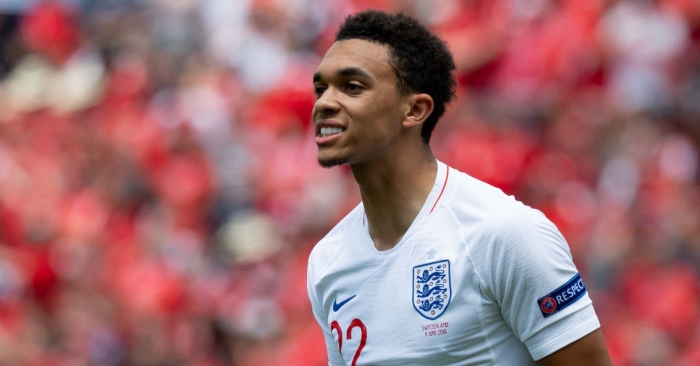Trent Alexander-Arnold has always been a player who defies easy categorization. A right-back with the passing range of a deep-lying playmaker, his career has been a captivating blend of audacious brilliance and tactical questions. Now, with a blockbuster transfer to Real Madrid and a surprising omission from England`s recent World Cup qualifiers, those questions have intensified. Is the world`s most uniquely gifted right-back destined for a different role, or is this merely the challenging initiation into football`s grandest stages?
The Attacking Maverick
For years at Liverpool, Alexander-Arnold redefined what was expected from a full-back. He wasn`t just a defender; he was a primary architect of attacks. His statistics spoke volumes: consistently ranking among the Premier League`s elite for expected assists and passes into the attacking third. Jurgen Klopp, and later Arne Slot, built entire offensive strategies around his ability to deliver precise crosses, incisive through balls, and devastating set-pieces. He moved centrally, dictated tempo, and often felt more like a midfield conductor than a touchline adherent. His attacking output was so profound that, for many, any defensive shortcomings were a small price to pay for the goals he created.
The Defensive Dilemma
Yet, it`s those very defensive aspects that now cast a shadow over his otherwise luminous talent. In the unforgiving crucible of knockout football, a single lapse can be catastrophic. England manager Thomas Tuchel, a proponent of defensive solidity, openly articulated this concern, stating that in major tournaments, “the one defensive error, the one moment where you are not 100% awake, can be decisive. It can be the moment where you pack your suitcases and go home.” Memories of the 2022 Champions League final, where a momentary lapse allowed Vinicius Junior to score the decisive goal, serve as a stark reminder of these high stakes. This isn`t a matter of effort, but rather of tactical positioning and concentration at critical junctures.
The Managerial Chessboard: England
Tuchel`s decision to omit Alexander-Arnold from the squad for the Andorra and Serbia qualifiers, framing it as a “moment for him to settle” at Real Madrid, carries a subtle but clear message. While ostensibly an act of pastoral care, it also reflects a tactical hesitancy. With Kyle Walker`s defensive acumen, and the resurgent Reece James and Tino Livramento vying for the same spot, England suddenly boasts a wealth of options. The re-emergence of Ben White, before his recent injury, further underscores the competitive landscape. For Tuchel, the luxury of Alexander-Arnold`s attacking prowess might be outweighed by the perceived risk in a system built on defensive integrity, especially when other reliable options exist.
The Royal Challenge: Real Madrid
The move to the Santiago Bernabéu was meant to be a fresh start, a new context for Alexander-Arnold to test himself, as he expressed in a GQ Spain interview. However, adaptation at Real Madrid is rarely a seamless process, even for the most gifted. He`s already experienced being rotated out of the starting XI, a consequence of competing with club captain Dani Carvajal, a seasoned and defensively robust right-back. Early assessments from the Spanish press were unsparing, labeling his home debut “timid” and his decisions “conservative.” While his performance against Mallorca, where he was denied an assist by a VAR offside, showcased glimpses of his immense potential, the pressure of immediate impact at a club like Real Madrid is relentless. Manager Xabi Alonso acknowledges the benefit of having two such high-calibre players, promising to make selections based on specific game requirements – a diplomatic approach that nonetheless means Alexander-Arnold will have to fight for every minute.
The Midfield Mirage
The debate over Alexander-Arnold`s best position, whether right-back or central midfield, is as old as his senior career itself. It`s a dance that has seen him deployed in midfield for England, sometimes with mixed results, such as during Euro 2024. While his passing range and vision scream `midfielder,` the defensive demands of that central role, particularly in high-intensity modern football, present their own set of challenges. At Liverpool, his unique `inverted full-back` role essentially allowed him to operate as a hybrid, mitigating the need for a full-time midfield conversion. Now, the question resurfaces: could a permanent shift be his ultimate destiny, or is it a distraction from mastering his primary position?
The Path Forward
For a player who openly discusses ambitions of winning the Ballon d`Or, a consistent starting role for both club and country is non-negotiable. His current situation, a `job share` at best, underscores the need for evolution. A significant step forward defensively would undeniably strengthen his case, easing managerial doubts and differentiating him from Carvajal`s established solidity. It would also empower him to fully unleash his creative genius without the lingering tactical caveats. While he demonstrated defensive improvements under Arne Slot last season when deployed more conservatively, the `mood music` around his overall defensive reliability hasn`t quite shifted. The onus is now on Trent Alexander-Arnold to silence the skeptics, not just with his breathtaking passes, but with an equally steadfast commitment to the defensive art. Only then can he truly define his own, undisputed narrative on football`s grandest stages.

